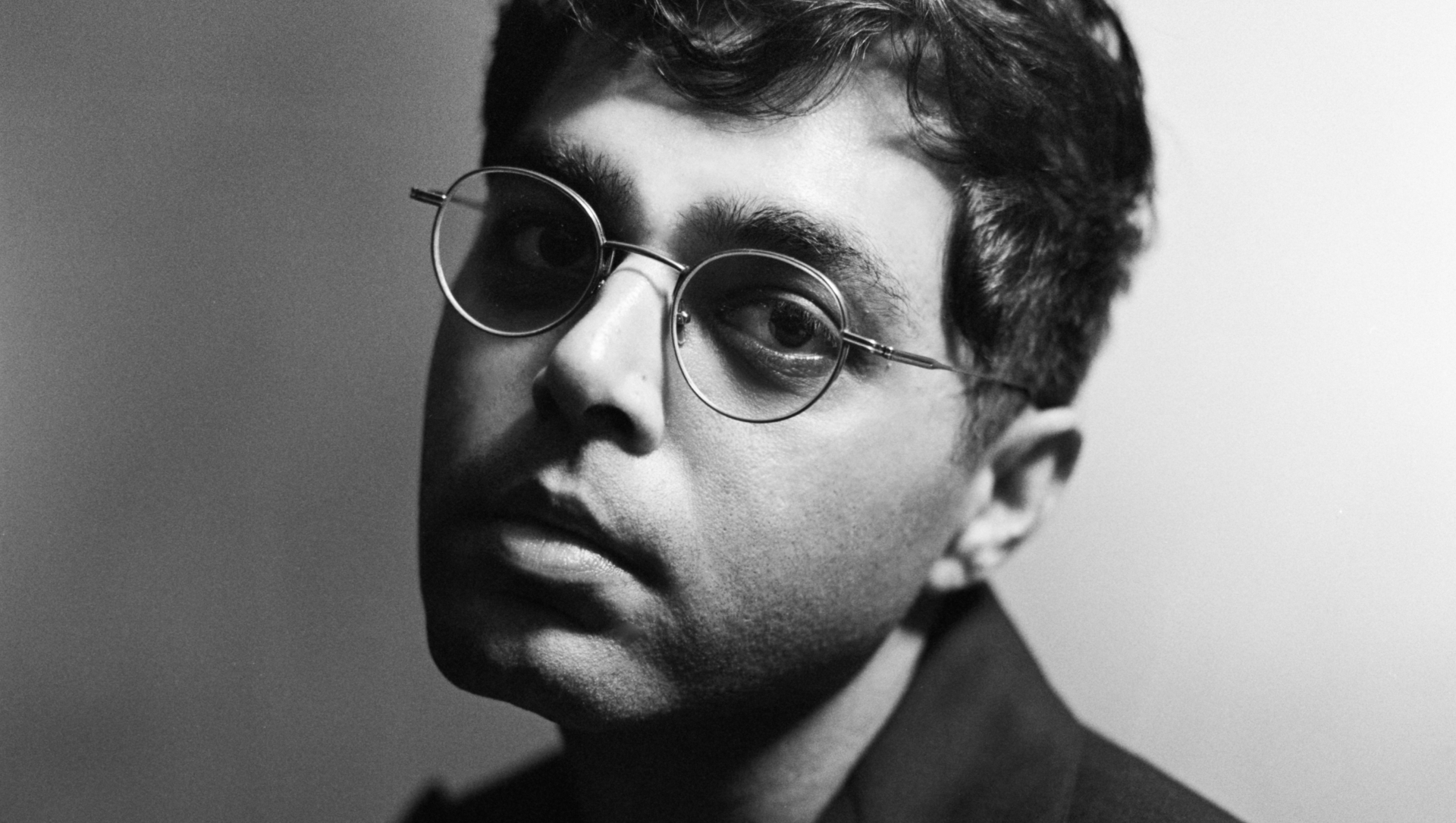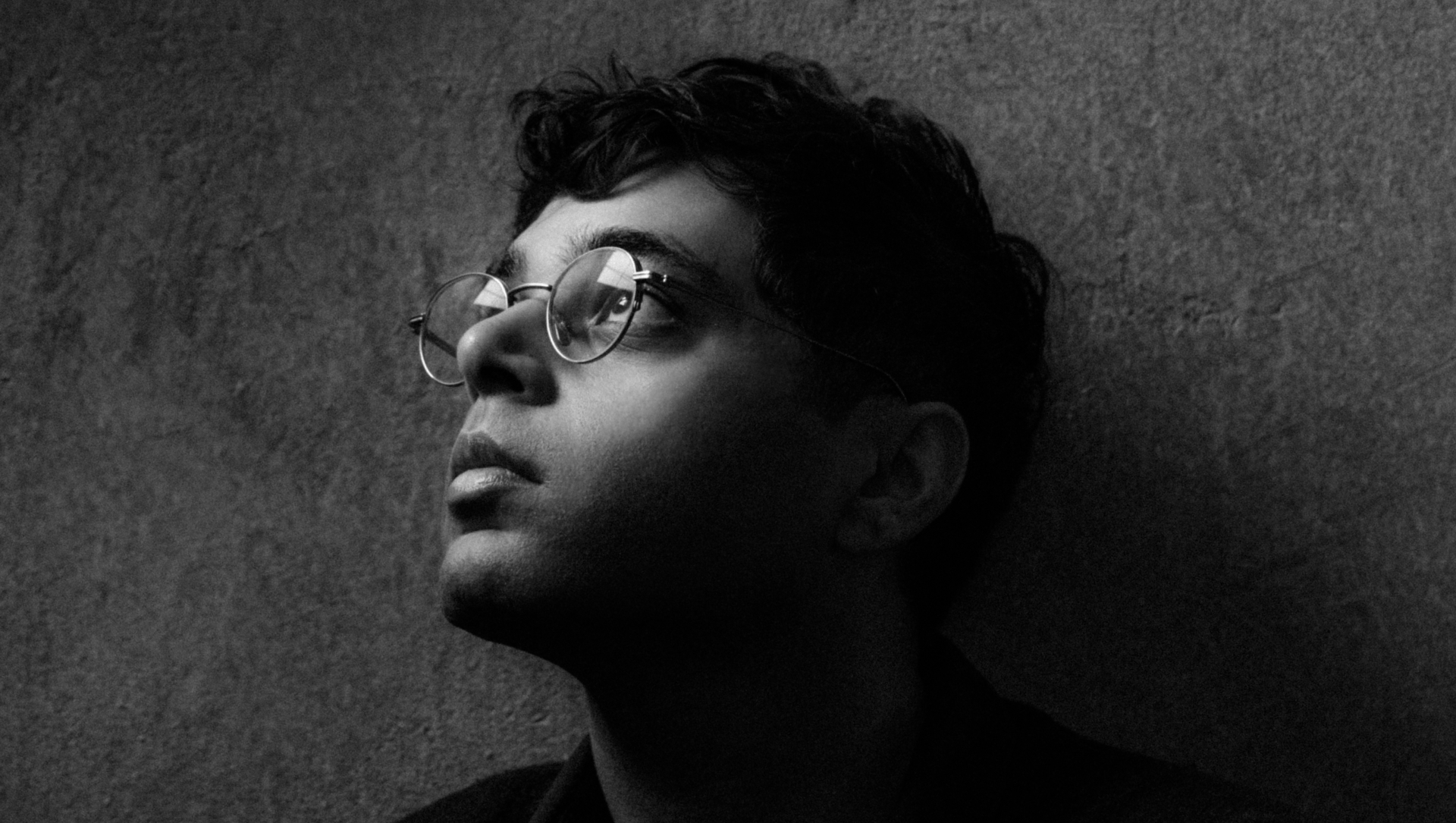Finding Your Sound: Rafiq Bhatia
The Brooklyn-based guitarist talks dreams, nature and music’s ability to transport you to a different place.
by Brad Farberman
When guitarist Rafiq Bhatia was fussy as an infant, his parents would bring him to the one place in their North Carolina home that brought him peace.
“We lived at the edge of the woods, and there was this screen door sort of thing in our living room that looked out on the woods, and they’d just set me down in front of the screen door,” remembers Bhatia. “And then I’d just stare out the window and I’d get quiet, and I’d just be present in the moment, observing nature.”
Bhatia has since attended Oberlin College in Ohio; settled in Brooklyn; worked with everyone from Heems to Dave Douglas; and, as a member of Son Lux, scored both Thunderbolts* and the Oscar-winning Everything Everywhere All at Once. But he returns to the natural world today with Environments, his transcendent third album. Fashioned with Westerlies trumpeter Riley Mulherkar and Son Lux drummer Ian Chang, Environments is a hopeful, courageous improv session featuring the sounds of birds, rain, thunder, crickets and tides lapping at the shore. But with the exception of a few field recordings, what you hear is created purely by the musicians, channeling sonics only found outside of studio walls. And it’s nearly impossible to know where one vision ends and the other begins.
“There are some moments of field recordings — like, there’s no way that our instruments could have created the opening feeling of thunder that happens on ‘The Sky Breaks Open,’” explains Bhatia. “But the rain that starts to fall shortly thereafter is the manipulated sound of Riley’s key valves. What I’ll say is that the line between what comes from nature and what comes from the instruments present on the record is very hard to detect.”
But nature is only part of the equation on Environments — according to Bhatia, “It’s even more inspired by the goal of conjuring place, or evoking place in sound.” He compares it to what he calls “The Two-Second Rule,” when you hear a great artist — he shouts out John Coltrane, Thelonious Monk and Bill Frisell — and you know it’s them right away.
“Whether Madlib has obsessively programmed every sound on a really complicated beat or he just flipped a sample, somehow, even when he just flips a sample and there’s nothing else happening, it sounds more like Madlib than the original sample,” says Bhatia. “I don’t know how he does that. But for forever, I’ve been obsessed with this sort of thing of like, you can hear and feel and understand a person and their experience so fast in sound. I mean, I think if you listen for us, we’re all there all the time, and we're all present all the time, and I think we all bring ourselves. But at the same time, there’s something else that I’m grasping at, which is like, what if actually within two seconds you’re in a place.”

In terms of influences, Environments draws from a number of sources, including Ryuichi Sakamoto’s async (“a North Star for sure”) and the later works of Pharoah Sanders and Elvin Jones (“The way that folks play in the wiser period of life”). Bhatia also spoke about director Apichatpong Weerasethakul, with whom he collaborated on the 2022 film On Blue.
“His work is very surreal, but in this beguilingly calm sort of way, and it unfolds with this glacial pace and it’s very beautiful and serene,” says the guitarist. “The pacing was very, very influential on me. He basically doesn’t use score in his films, but the way that the sound of the environment functions is almost like an active participant, in the way that a score might.”
Bhatia was also thinking about something he had heard the composer and trombonist George E. Lewis say. The guitarist once worked in an orchestra directed by Lewis, and on the topic of improv needing to work up to a big peak, the AACM legend left Bhatia with an image he never forgot.
“I remember him saying something to the degree of, like, ‘I just want to go into the concert hall, and sit down, and the music’s happening, and it’s just there,’” says Bhatia. “‘It’s not going anywhere, it’s just there like the weather. And then at the end, you just get up and leave.’”
Bhatia also links the new album to, in a general sense, dreams, a more-than-reasonable connection given the fantastic nature of the music. The guitarist hopes that these songs will bring a feeling of safety, like falling asleep in the grass beneath the stars.
“I think in times like these in the world, dreams have an extra significance for me, because they allow us to rearrange and retool and move into the pathway of the inner journey,” says Bhatia. “And there can be pathways and modes of seeking knowledge and building things that are shrouded or hidden from the public eye, too. And so, this is music for anyone who recognizes that this is a moment where it’s not that we need an escape, it’s that we need a sanctuary.”



